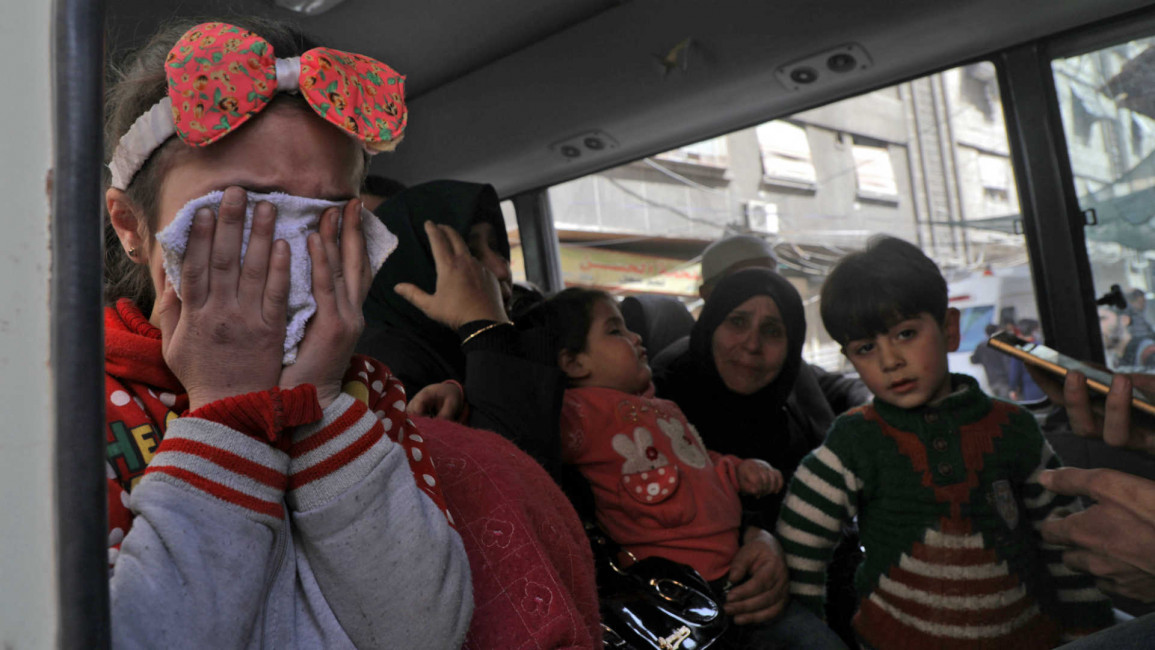Humanitarian disaster feared as Syria's Idlib on verge of becoming 'the new Aleppo': UN
Two of the UN's most prominent Syria experts voiced grave concerns over the looming humanitarian crisis in rebel-held northern Syrian, as the Assad regime sets its sights on retaking remaining opposition-held pockets in the war-torn country.
Hundreds of thousands of Syrians have been pouring into Idlib, the largest territory still in rebel hands, in past weeks as civilians and fighters in other opposition-held areas such as Eastern Ghouta and Eastern Qalamoun were forced to evacuate.
Jan Egeland, the chief of the UN’s humanitarian task force for Syria said: "All my energies currently and in the coming weeks are dedicated to averting a fresh humanitarian disaster," The Guardian reported on Wednesday.
Egeland voiced concern over what he called the "giant area of displacement" in Idlib, warning that any offensive could rapidly turn into a bloodbath.
"More than half of the population in Idlib of 2 million have already been displaced, sometimes multiple times, so there has to be a negotiated end to the conflict in Idlib. You cannot have a war in the midst of the largest cluster of refugee camps and displaced people in the world," he told The Guardian.
Extremist militant group Hayat Tahrir al-Sham control much of Idlib, making it a "legitimate target" for Syrian regime offensives backed by Russia and Iran to regain control of the country under the auspice of "fighting terrorism".
 |
My fear is the Syrian government will say the place is filled with 'terrorists' and therefore you can wage war like they did during the sieges in Aleppo and eastern Ghouta |  |
"My fear is the Syrian government will say the place is filled with 'terrorists' and therefore you can wage war like they did during the sieges in Aleppo and eastern Ghouta … Yes, there are bad guys wearing beards, but there are many more women and children and they deserve protection. You cannot wage war as if everyone is a terrorist, or else will it be a nightmare," Egeland said.
Twitter Post
|
UN Syria envoy Staffan de Mistura on Tuesday echoed Egeland’s concerns, telling a donor meeting in Brussels that Idlib risks suffering the same fate as Aleppo, seized in a Russian-backed Syrian offensive in 2016, and Eastern Ghouta; retaken by the regime shortly after an alleged chemical attack in early April.
See in pictures: New sporting opportunities help Syrians find hope after losing limbs
"We were and are concerned on the humanitarian side by Idlib. Because Idlib is the big new challenge, 2.5 million people," Mistura told a press conference with EU diplomatic chief Federica Mogherini.
"And you will not believe that all of them are terrorists of course. There are women, children, civilians, and this is looming up there," he added.
"So we hope that this would be an occasion for making sure that Idlib does not become the new new Aleppo, the new Eastern Ghouta, because the dimensions are completely different," Mistura added.
The EU and UN on Tuesday began a two-day push to drum up fresh aid pledges for war-torn Syria and reinvigorate the faltering Geneva peace process as the conflict enters its eighth year.
 |
After two weeks of terribly tense and rhetorically intense meetings, there was a need again to bring down the temperature |  |
The meeting comes in the wake of strikes by the United States, France and Britain on Syrian military installations in response to the alleged chemical weapons incident in Douma which has been widely blamed on Damascus.
Mistura said a UN Security Council retreat in a secluded farmhouse in Sweden at the weekend called in a bid to overcome its paralysis on Syria had lowered the "temperature" but failed to find a political solution.
"After two weeks of terribly tense and rhetorically intense meetings, there was a need again to bring down the temperature," Mistura said.
"Has this avoided or completely resolved the division which exists in the Security Council on Syria, which is the biggest problem the UN has... no," he added.
"Has the atmosphere gone down and the understanding that there are common issues that can be faced together, yes."
Mogherini and de Mistura both called on Russia, Iran and Turkey - the three powers involved in the so-called Astana process seeking peace in Syria - to do more to reach a ceasefire.
 |
The main message is that Syria is not a chessboard, it's not geopolitical game |  |
"The main message is that Syria is not a chessboard, it's not geopolitical game," former Italian foreign minister Mogherini told the news conference.
"I believe they (the three Astana process countries) have not only a responsibility but also an interest in making the ceasefire work."
Meanwhile, the Syrian regime is moving to retake an opposition-held pocket north of Homs city as soon as it concludes surrender deals with militant groups around the capital Damascus, according to a Syrian government minister on Tuesday.
The regime has been carrying out a full-scale offensive against a cluster of towns in southern Damascus formerly held by the Islamic State group, who are expected to surrender in the coming days.
Regime offensives on Homs and Idlib, where 300,000 internally displaced Syrians have settled since August 2017, are expected to unleash another wave of mass displacement towards the Turkish border.
"The Syrian civil war has lasted two years longer than the second world war, and far from 2017 and early 2018 becoming a moment when the war wound down, the crisis has escalated," Egeland said.
"I really thought 2017 would be the last huge war year, but the crisis has continued at the same ferocity into 2018. This has become a tremendous marathon of pain."
Agencies contributed to this report.



